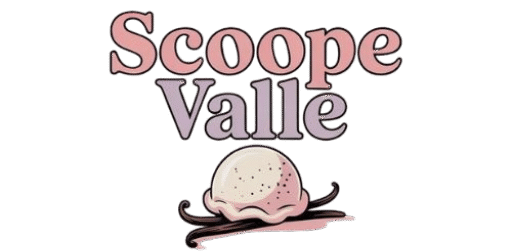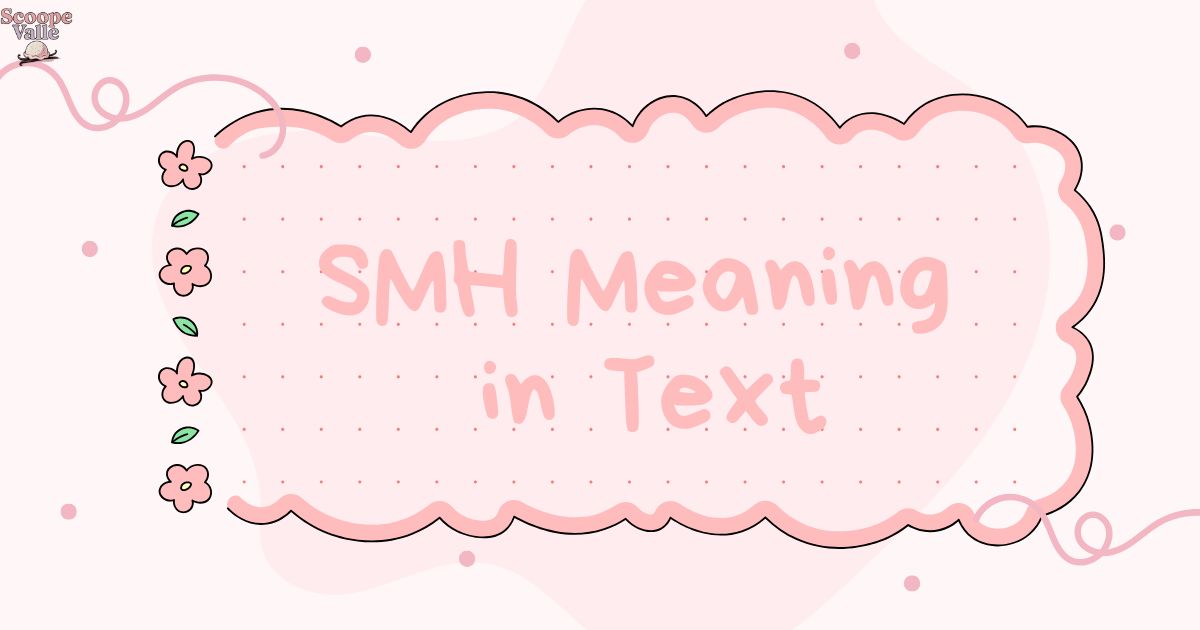Ever seen someone reply “SMH” to a message and wondered what it means? 🤔 You’re not alone! This tiny acronym has taken over texting, social media, and even online gaming chats. It’s a simple but powerful way to express emotions without typing long sentences. Whether it’s used to react to a silly mistake, a piece of shocking news, or something annoying, SMH adds an instant emotional layer to digital conversations.
In this guide, we’ll explore what SMH means, where it came from, and how you can use it naturally in everyday messages. Let’s dive in and decode this popular piece of internet language! 🚀
Definition & Meaning
SMH stands for “Shaking My Head.” It’s a quick, informal way to express disbelief, disappointment, or mild frustration. When someone says SMH, they’re usually reacting to something foolish, annoying, or surprising — basically, something that makes you shake your head in disbelief.
Example:
- Friend 1: “I stayed up all night but forgot to save my work.”
- Friend 2: “SMH, rookie mistake! 😅”
SMH doesn’t always mean anger often, it’s used playfully or lightheartedly. It’s a short emotional response that replaces longer phrases like “I can’t believe that!” or “What were you thinking?”
While rare, SMH can also mean “So Much Hate” in specific online contexts, especially during heated debates or comment sections. However, this usage is much less common today.
In short: SMH helps express emotion efficiently, without extra words perfect for fast-paced digital chats. 💬
Background & History
The expression “shaking my head” has been around for decades, long before texting existed. People physically shake their heads to show disappointment or disbelief so it was only natural for the phrase to find a digital shorthand.
Timeline of SMH:
- Early 2000s: SMH first appeared in online chatrooms, forums, and instant messaging platforms like AOL Instant Messenger (AIM) and MySpace.
- 2010s: The acronym gained massive popularity on Twitter, Facebook, and meme culture. It became the go-to response for absurd news, viral fails, or dumb decisions.
- Today: SMH is recognized globally as a universal slang term, used in texting, tweets, and even comment sections on TikTok, Instagram, and YouTube.
While “Shaking My Head” remains the main meaning, some communities used “So Much Hate” temporarily to describe negativity online. Still, the classic “shaking my head” definition dominates modern use.
Fun fact: SMH was officially added to Urban Dictionary back in 2004 — marking its solid place in internet language history. 📚
Also read: HMB Meaning in Text: A Complete Guide to Understanding and Using It
Usage in Various Contexts
SMH is incredibly versatile. You’ll see it used across texts, social media, gaming, and even casual workplace chats. The tone changes depending on the setting from playful teasing to genuine frustration.
1. Texting 📱
In texting, SMH is used to react to mistakes or surprising news.
- Example:
Friend: “I left my phone at home again!”
You: “SMH 😂 you do this every week!”
2. Social Media 💬
On platforms like Twitter, Facebook, or TikTok, SMH is often used in captions or comments to express frustration or disbelief.
- Example:
Post: “They increased prices again! SMH 😒”
Comment: “Exactly! How do they expect people to afford this?”
3. Gaming 🎮
In gaming chats, SMH shows disappointment when a teammate makes a mistake or when the game goes wrong.
- Example:
Gamer 1: “I missed the final shot.”
Gamer 2: “SMH bro, we almost had it!”
4. Group Chats 💬
Among friends or classmates, SMH adds humor and personality to everyday chats.
- Example:
Friend: “He forgot to bring the notes to class.”
You: “SMH, classic him. 😆”
Tip: The tone of SMH depends on the context, it can be serious, sarcastic, or playful. Reading the situation helps you interpret it correctly. 🔍
Common Misconceptions & Clarifications
Like most internet slang, SMH can be misunderstood. Here are a few common misconceptions cleared up:
- ❌ Myth: SMH is always negative.
✅ Fact: Not necessarily! It’s often used jokingly or with mild frustration, not anger. - ❌ Myth: SMH is random or meaningless.
✅ Fact: It specifically means “Shaking My Head,” showing disbelief or disappointment. - ❌ Myth: SMH can be used in formal communication.
✅ Fact: It’s too informal for emails or professional settings and might confuse readers unfamiliar with internet slang.
In short: SMH is best reserved for casual settings it keeps conversations expressive but lighthearted. 😌
Similar Terms & Alternatives
Sometimes, you might want a word or phrase that carries a similar emotion to SMH. Here are a few alternatives:
| Term | Meaning | Best Used In |
|---|---|---|
| Facepalm | Disbelief or embarrassment | Casual chats, memes |
| Ugh | Annoyance or frustration | Texts, social media |
| Eye roll 🙄 | Sarcastic disbelief | Messages, comments |
| Too much drama | Overwhelming negativity | Comment sections, debates |
While SMH often implies mild frustration, facepalm adds more emphasis, suggesting embarrassment. You can use either depending on how strong your reaction is.
Example:
- “SMH, that’s ridiculous.”
- “Facepalm… not again!”
Both get the message across it’s all about tone and personality. 😄
How to Respond to This Term
When someone sends you “SMH,” your response should match their tone or the situation. Here’s how:
Casual Chat 😊
- Friend: “I spilled my drink again, SMH.”
- You: “Haha, you need a lid! 😆”
Humorous Reply 😂
- Friend: “He thought Wi-Fi works without electricity. SMH.”
- You: “Genius of the year award! 🏆🤣”
Serious Situation 😔
- Friend: “SMH, the event got canceled.”
- You: “That’s disappointing. Hope they reschedule soon.”
Professional Setting 💼
- Colleague: “Printer jammed again, SMH.”
- You: “Frustrating! Let’s see if we can fix it.”
Key Tip: Always read the mood before responding. SMH can express light humor or genuine frustration — your reply should fit that energy.
Regional or Cultural Differences
While SMH is widely recognized, its frequency and tone can vary around the world.
- 🌎 North America & Europe: SMH is very common and used casually across texts and social media.
- 🌏 Asia: Often used by younger, tech-savvy individuals who follow Western slang trends.
- 🌍 Other Regions: Understood mainly online but less used in face-to-face communication.
Cultural tone also matters in some places, using slang in mixed-age or professional groups might seem disrespectful. So, it’s best to know your audience before dropping an SMH. 😉
Comparison with Similar Terms
SMH stands out from other emotional acronyms because of its universal tone. Here’s how it compares:
| Term | Meaning | Key Difference |
|---|---|---|
| SMH | Shaking My Head (disbelief/frustration) | Common and versatile |
| Facepalm | Embarrassment or disbelief | More visual and dramatic |
| Ugh | Annoyance | More emotional, less sarcastic |
| LOL | Laughing Out Loud | Expresses humor, not frustration |
| OMG | Oh My God | Shows surprise or shock |
SMH is perfect when you don’t want to sound too harsh or too silly — it balances emotion and simplicity beautifully. 💬
Usage in Online Communities & Dating Apps
SMH has become part of digital culture across platforms. Here’s where it appears most:
Twitter/X 🐦
Users often post SMH to react to bizarre news or trends.
Example: “They really canceled that show? SMH 😩 #TVFails”
Reddit 💻
Common in discussions where users react to poor decisions or controversial posts.
Example: “SMH, people still falling for scams like this.”
Gaming Communities 🎮
Gamers use SMH to express disappointment in plays, bugs, or teammates.
Example: “SMH, we lost again because no one followed the plan.”
Dating Apps 💘
Used humorously in bios or messages.
Example:
Bio: “SMH at my love for bad puns 😅.”
Message: “Haha, SMH, you actually laughed at that?”
It keeps conversations fun, relatable, and full of personality.
Hidden or Offensive Meanings
The good news? SMH is not offensive. ✅
Its primary meaning, “Shaking My Head,” is safe and widely accepted. The alternate meaning, “So Much Hate,” is rare and only used in contexts involving online negativity.
However, tone matters.
- Used sarcastically, SMH can seem dismissive or judgmental.
- In sensitive discussions, it might come off as rude if the other person doesn’t understand your intent.
So, while SMH isn’t inherently offensive, it’s best used in friendly or casual exchanges. 👍
Suitability for Professional Communication
SMH doesn’t belong in professional or formal environments. Using it in emails, reports, or business chats might confuse others or seem unprofessional.
Instead of saying:
“SMH at the delay.”
Say:
“The delay is frustrating.”
or
“This situation is disappointing.”
Reserve SMH for personal chats or team banter where everyone understands the tone. For official communication, clarity and professionalism should always come first. 💼
FAQ’s
What does SMH mean in texting?
SMH stands for “Shaking My Head,” showing disbelief, frustration, or mild disappointment.
Can SMH mean something else?
Rarely, it can mean “So Much Hate” in online debates, but this use is uncommon.
Is SMH appropriate for work?
No, it’s too informal. Use professional expressions like “frustrating” or “disappointing.”
How do I reply to SMH?
Respond with humor or empathy depending on context. For example, “Haha, classic!” or “Yeah, that’s annoying.”
Is SMH used globally?
Yes, mostly in English-speaking or internet-savvy regions worldwide.
Can SMH be offensive?
Not inherently, but sarcastic use might sound dismissive.
Is SMH still popular?
Absolutely! It’s one of the most widely used slang terms on social media and texting platforms.
Conclusion
SMH short for “Shaking My Head” perfectly captures those moments of disbelief, frustration, or mild amusement we experience daily. From silly mistakes in group chats to online reactions to trending news, this acronym bridges emotion and simplicity in the digital age.
It’s casual, expressive, and universally understood among internet users. However, like all slang, knowing when and where to use it matters. Keep SMH for friendly, informal spaces and opt for clearer language in professional settings.
Tylor John, with five years’ experience, beautifully crafts information on all topics and inspiring readers worldwide with positivity, faith, creativity, love, and hope.

